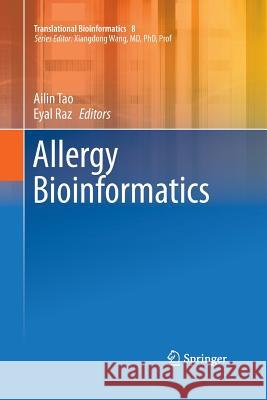Allergy Bioinformatics » książka
topmenu
Allergy Bioinformatics
ISBN-13: 9789402404036 / Angielski / Miękka / 2016 / 251 str.
Kategorie BISAC:
Wydawca:
Springer
Seria wydawnicza:
Język:
Angielski
ISBN-13:
9789402404036
Rok wydania:
2016
Wydanie:
Softcover Repri
Ilość stron:
251
Waga:
0.37 kg
Wymiary:
23.39 x 15.6 x 1.4
Oprawa:
Miękka
Wolumenów:
01
Dodatkowe informacje:
Wydanie ilustrowane











